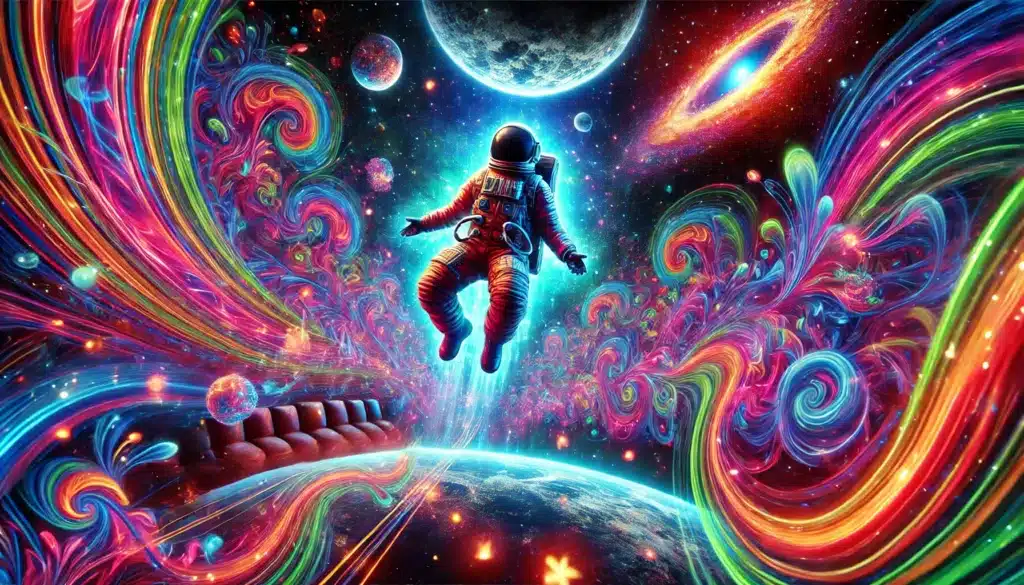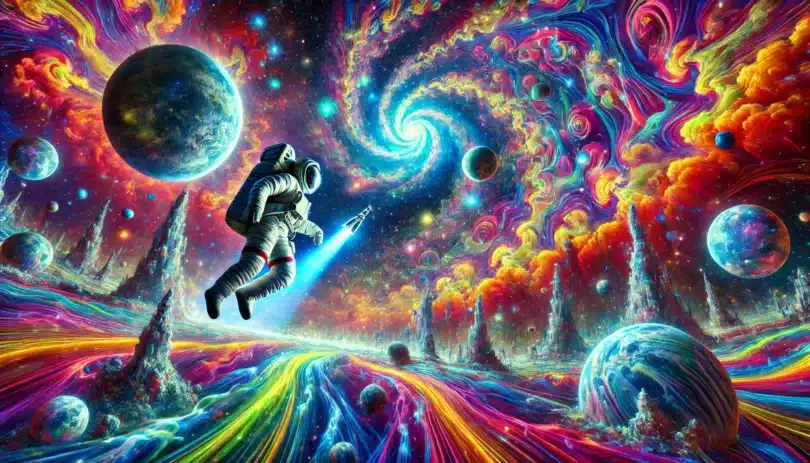With the increasing interest in psychedelics as tools for mental health and emotional well-being, questions about their potential use in space are becoming more relevant. As humanity ventures further into space with extended missions to Mars and beyond, the role of psychedelics in managing stress, isolation, and mental health may come to the forefront. But is it legal to take psychedelics in space? The answer depends on various legal, safety, and ethical considerations, all of which are crucial for understanding whether psychedelics like psilocybin, LSD, or MDMA could ever be part of space missions.
The Legal Landscape: Psychedelics on Earth and in Space
The legality of psychedelics varies greatly from country to country. On Earth, most psychedelics are classified as Schedule I substances under the United Nations Convention on Psychotropic Substances and national drug laws, meaning they are considered to have no recognized medical use and a high potential for abuse. In the United States, for instance, psychedelics like psilocybin and LSD are Schedule I drugs under the Controlled Substances Act. As a result, NASA and other U.S. government-affiliated space agencies strictly prohibit their use. Astronauts are subject to regular drug testing and are expected to comply with these stringent regulations.
However, the situation becomes more complex when we consider private space missions and missions led by countries with more lenient drug laws. The rise of private companies like SpaceX, Blue Origin, and Virgin Galactic opens up new possibilities for space exploration, and these companies are not necessarily bound by the same strict federal regulations as NASA. The legal framework for space missions is governed by the Outer Space Treaty of 1967, which stipulates that the country under which a spacecraft is registered holds jurisdiction over its activities in space.
This means that a private mission from a country where psychedelics are decriminalized or permitted for medical use—such as Canada or certain European countries—could, in theory, allow for psychedelic use during a space mission. However, this remains speculative, as most space-faring nations still adhere to stringent drug policies that would likely extend to space.
The Outer Space Treaty and National Jurisdiction
The Outer Space Treaty, signed by over 100 countries, is the foundation of international space law. Under this treaty, nations are responsible for both their governmental and private entities’ activities in space. This means that space missions must follow the laws of the country under which the spacecraft is registered. For example, a U.S.-based mission would be bound by U.S. federal law, meaning that psychedelics would be prohibited due to their classification as Schedule I drugs.
However, if a mission is registered in a country with more permissive drug laws, such as Canada, where psilocybin has been decriminalized in some cases for medical use, the legal framework could be different. Private space companies could theoretically allow the use of psychedelics, provided the mission follows the host country’s legal standards. That said, no space agency or company has yet permitted psychedelics in space, and the overarching principles of safety and mission integrity remain paramount.
Psychedelics for Mental Health: Medical and Therapeutic Considerations
As space missions get longer and more isolated, the mental health of astronauts becomes a significant concern. Long-duration missions to Mars, for example, will last for up to three years, with astronauts facing extended periods of isolation, confinement, and communication delays with Earth. The stress of such missions poses risks for depression, anxiety, and cognitive fatigue. In recent years, psychedelics like psilocybin, MDMA, and LSD have been explored for their therapeutic potential in treating mental health conditions such as depression, PTSD, and trauma.
Psilocybin, the active compound in magic mushrooms, has shown promising results in reducing symptoms of depression and anxiety, particularly in clinical settings. It promotes neuroplasticity, which enhances the brain’s ability to form new neural connections—critical for maintaining emotional resilience and psychological flexibility. These benefits could be invaluable for astronauts on long-term missions, who need to maintain mental sharpness and emotional stability despite the stressors of space.
Similarly, MDMA has been studied for its ability to help patients cope with trauma and improve their emotional well-being. For astronauts facing the pressures of space travel, MDMA could potentially mitigate the psychological toll of isolation and help manage interpersonal conflicts during confined missions. Although these drugs have demonstrated therapeutic benefits on Earth, their use in space introduces new challenges.
Ethical and Safety Concerns of Psychedelic Use in Space

While the therapeutic potential of psychedelics is promising, their use in space introduces significant safety and ethical concerns. One of the main risks is the potential for cognitive impairment. Psychedelics alter perception, thinking, and sensory processing, which could be dangerous in a high-stakes environment like space. Astronauts must perform complex tasks – such as spacewalks, operating spacecraft, or managing emergency situations – where even a slight decrease in cognitive function could lead to catastrophic consequences.
Moreover, the effects of psychedelics in a microgravity environment are not well understood. Drugs metabolize differently in space, and the combination of fluid shifts, radiation exposure, and psychological stress could lead to unpredictable reactions. What works on Earth may not function the same way in space, raising concerns about the reliability and safety of using psychedelics during space missions.
The ethical concerns also include the risk of astronauts becoming dependent on psychedelics to manage their mental health. Long-term psychedelic use, even in controlled doses, may lead to tolerance or dependency, which could complicate their health upon returning to Earth. Furthermore, the potential for negative psychological experiences, such as bad trips or psychotic episodes, could pose serious risks in space, where immediate medical or psychological intervention might not be readily available.
Psychedelics and Future Space Missions: Exploring Alternatives
Given the legal, safety, and ethical concerns surrounding psychedelic use in space, it is unlikely that space agencies will adopt these substances in their current form. However, there is potential for alternative approaches to emerge in the future. One possibility is microdosing, where small, sub-perceptual doses of a psychedelic are taken regularly to achieve benefits like improved focus, creativity, and mood stability without the risk of hallucinations or cognitive impairment. Microdosing psilocybin could offer astronauts a way to enhance mental clarity and resilience without the risks associated with full doses.
Another avenue of research is the development of synthetic psychedelics designed to mimic the therapeutic effects of substances like psilocybin or MDMA but without causing significant alterations in perception. These drugs could provide the mental health benefits astronauts need while minimizing the potential for negative side effects.
Conclusion
The legal status of taking psychedelics in space depends on the jurisdiction governing the mission. While space agencies like NASA strictly prohibit the use of controlled substances like psilocybin, LSD, and MDMA, private missions from countries with more lenient drug laws could, in theory, allow their use. However, significant safety and ethical concerns remain. Psychedelics’ potential for impairing cognitive function, especially in the microgravity environment of space, makes their use risky in mission-critical settings. Nonetheless, as research into microdosing and synthetic psychedelics continues to evolve, these substances may one day play a role in supporting astronaut mental health during long-duration space missions.







